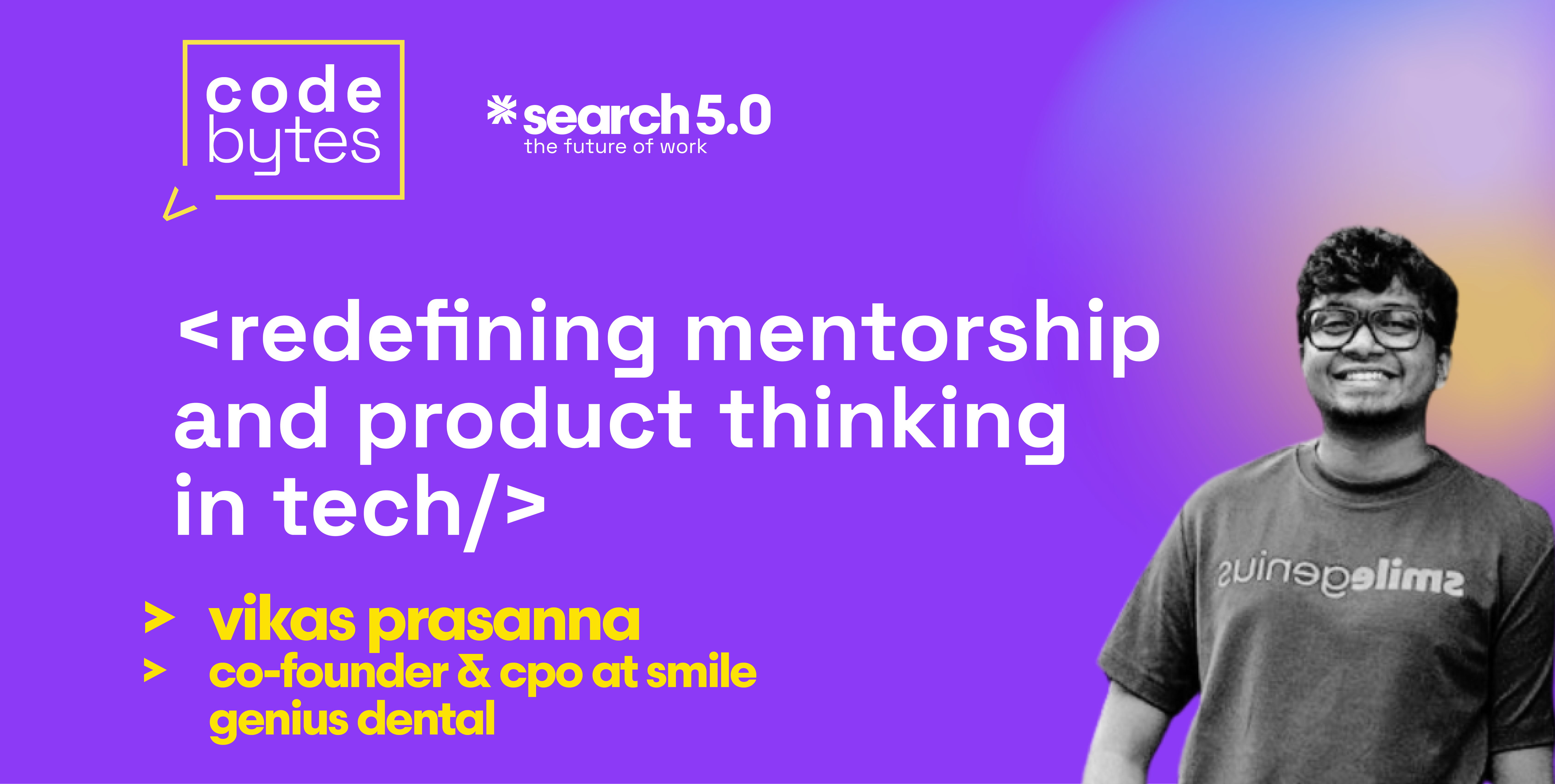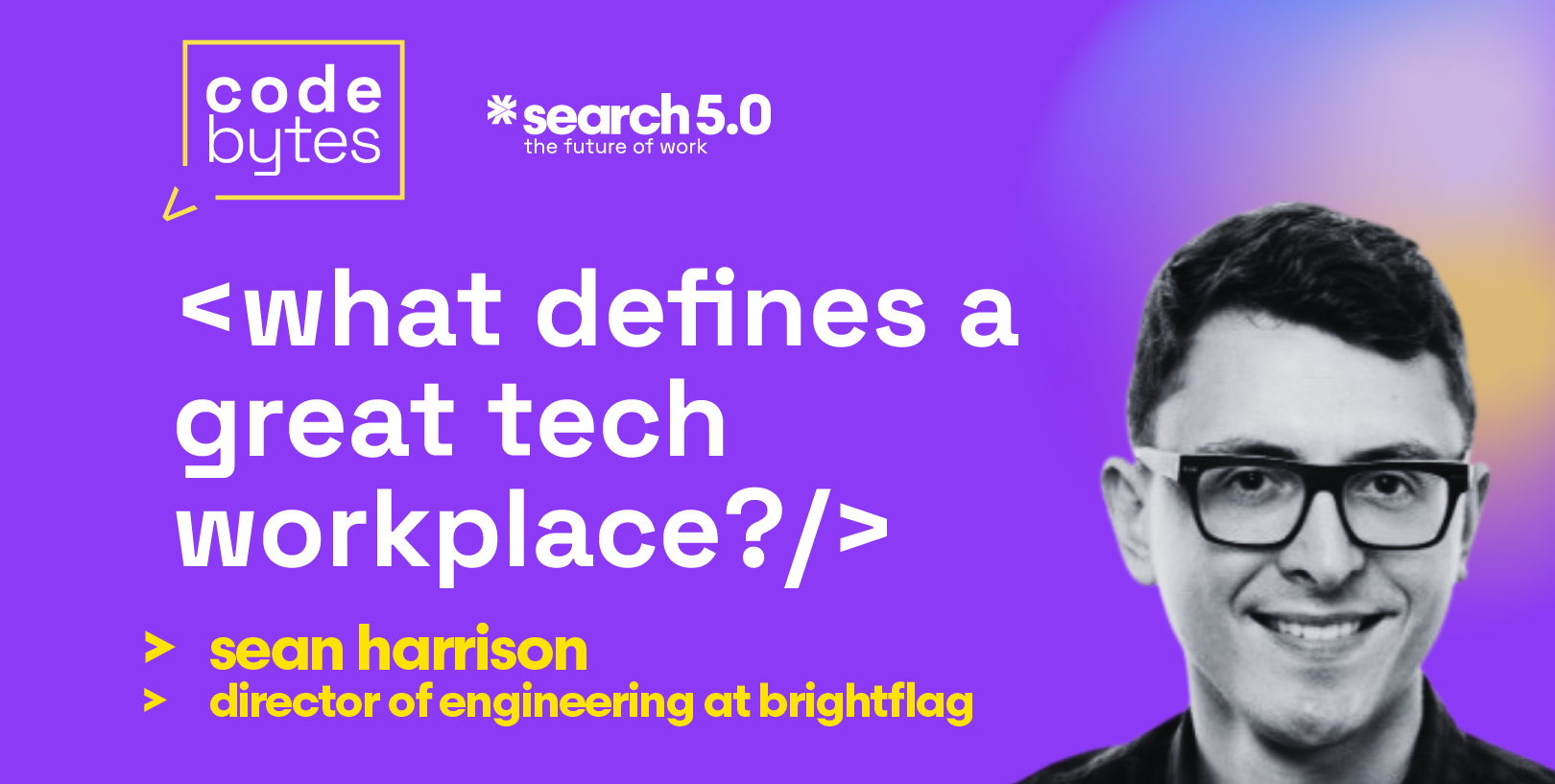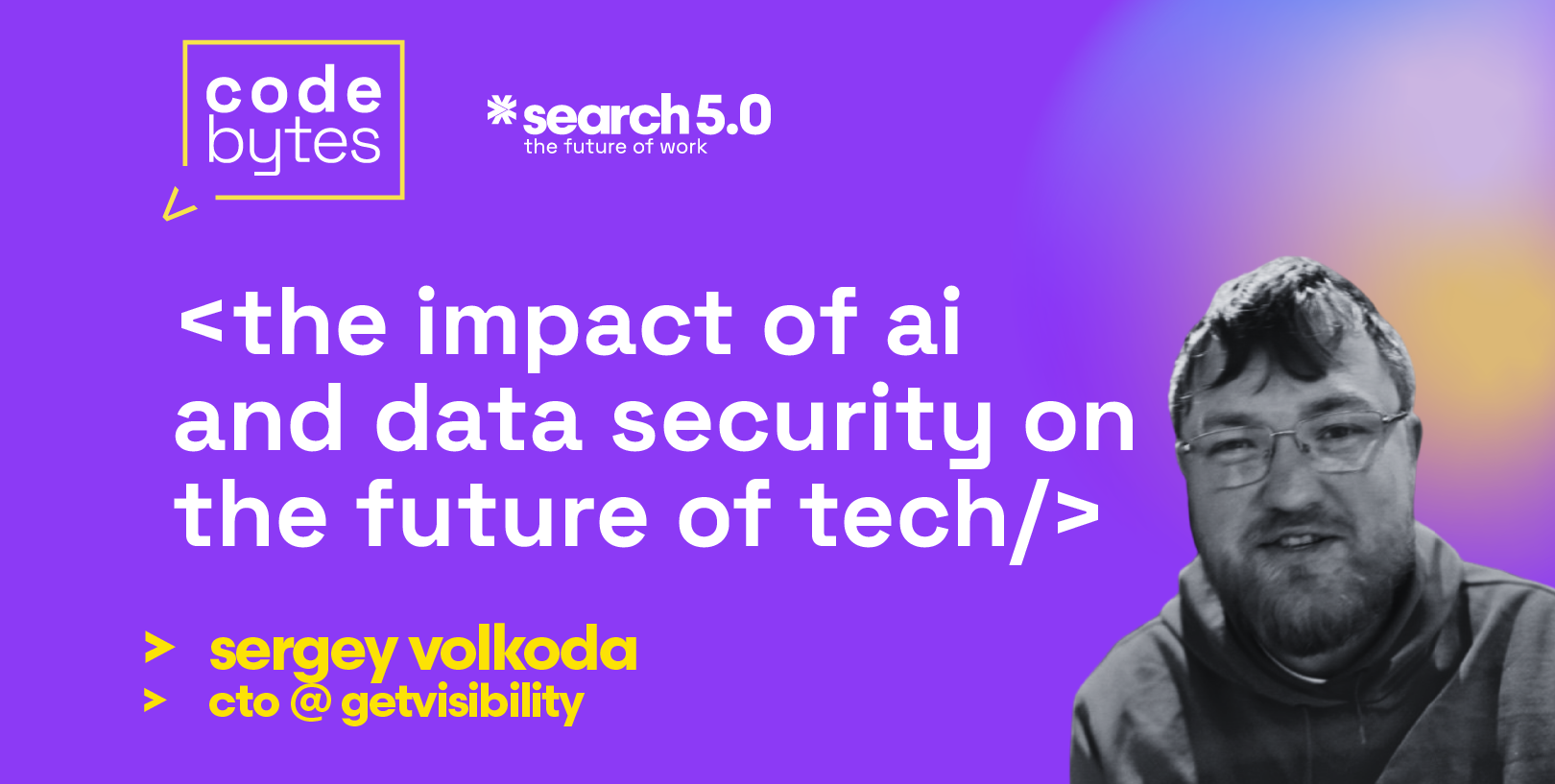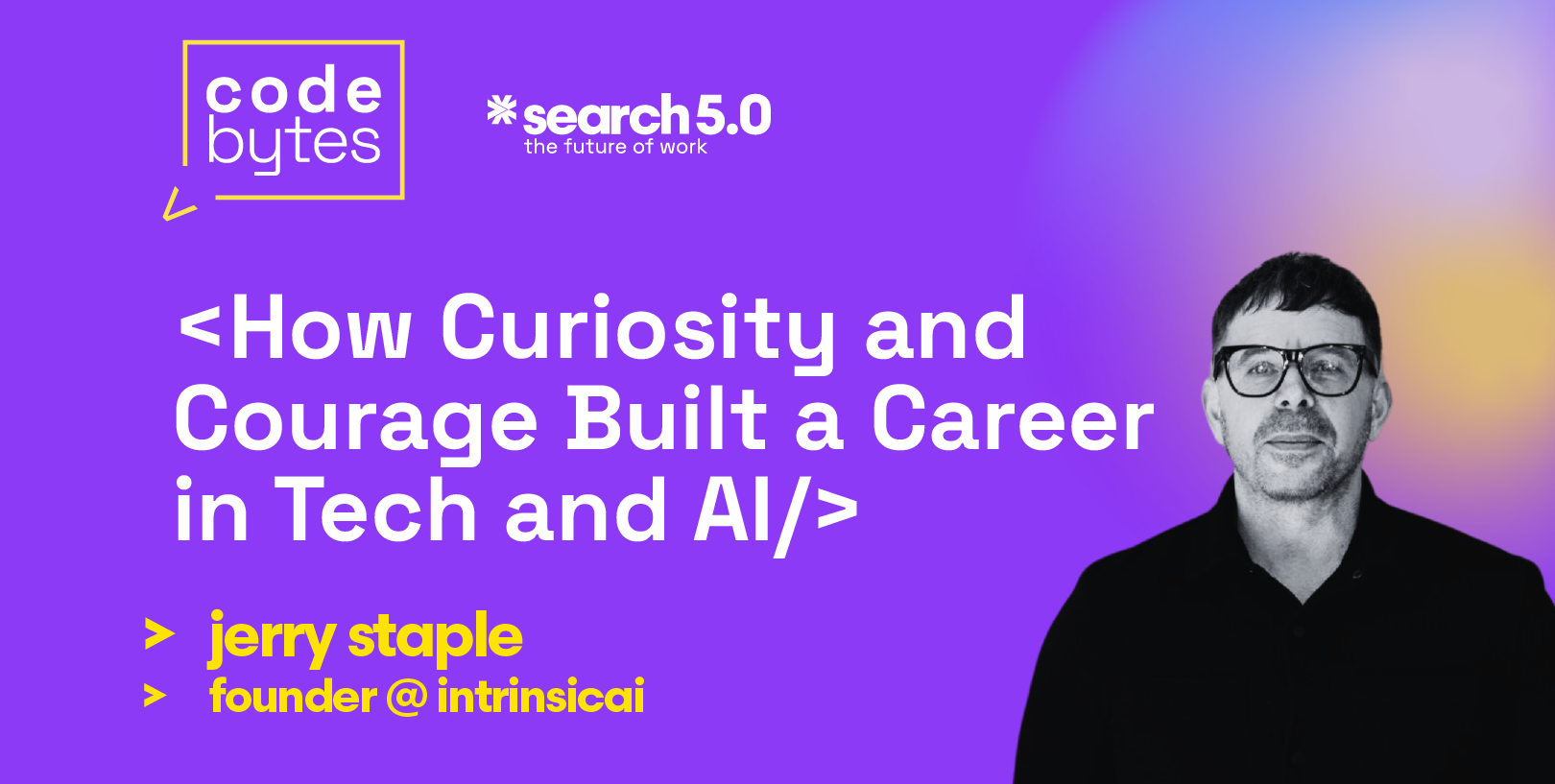
From Tinkerer to Tech Leader
In a standout episode of Code Bytes, host Stephen welcomes Sean Harrison, Director of Engineering at legal tech innovator Brightflag, for a conversation that’s rich in insight, reflection, and real-world lessons in career growth, leadership, and startup culture. Sean’s story isn’t just one of personal development—it’s a blueprint for how technology careers can evolve when passion meets opportunity, and when businesses invest in the right kind of talent.
At Search 5.0, a technology recruitment business dedicated to supporting scaling companies across the UK and Northern Ireland, stories like Sean’s offer invaluable takeaways. From hiring strategies to engineering culture, mentorship, and team dynamics, this episode is a goldmine for any business or professional navigating the ever-changing landscape of technology recruitment.
Discovering a Passion for Tech at an Early Age
Sean’s journey into technology started long before most people consider their careers. His father, an electronics engineer who eventually transitioned into software, introduced him to a tech-rich environment at home. Rather than being pushed into the field, Sean naturally gravitated toward it. By the age of twelve, he was building computers and configuring home networks, driven purely by curiosity and a desire to learn.
This organic interest in technology led him to pursue a degree in computer science, a decision he made with certainty while his peers were still undecided. Sean chose Athlone Institute of Technology (AIT), drawn by its hands-on learning approach. The decision proved formative—not just in terms of skill development but also in shaping his mindset around experiential learning.
One of the most impactful parts of his university experience was a nine-month internship at a French electronics manufacturer in Galway. Rather than being assigned a placement, Sean had to write his own CV, attend interviews, and secure the role himself—mirroring real-world hiring processes. Working on the production line and helping develop tracking software for car camera components, he saw firsthand how digital systems translate into physical outcomes. This early exposure to practical applications of software engineering shaped his approach to building meaningful, impactful tech.
Launching a Career in Consultancy—Then Pivoting to Startups
After graduating, Sean began his professional journey at Accenture, one of the largest consultancy firms in the world. There, he was exposed to a wide variety of technologies, including legacy systems that were nearly as old as he was. The experience gave him a broad view of the technology landscape and helped him build foundational skills in project work and cross-functional collaboration.
Despite enjoying the learning environment and camaraderie at Accenture, Sean found the pace frustrating. Projects often took months to kick off, and he craved a more agile, responsive environment where he could make an immediate impact. It was during this period that he realised he needed to make a bold move—out of large consultancy and into a startup.
This realisation became a defining moment in his career. Instead of requesting a transfer within the firm, he made the leap to Brightflag, an early-stage legal tech startup at the time. He was drawn not only to the product and its market potential but also to the culture and vision of the co-founders, Ian and Alex. The decision to join was instinctive, and he accepted the offer without hesitation.
Growing with Brightflag: A Decade of Impact
When Sean joined Brightflag, the company was made up of just five or six employees. Nearly ten years later, the team has grown to over 150. Unlike many startups that scale aggressively and risk losing their identity, Brightflag has grown steadily and deliberately. This measured growth has preserved the core culture of the business, something Sean credits as a key reason for his long tenure.
Brightflag’s product is focused on legal e-billing and matter management. The platform helps large multinationals manage their legal spend—sometimes in the tens of millions—by automating invoice review processes. Traditionally, legal teams would need to manually read and assess invoices from law firms, checking line items for compliance with billing guidelines. Brightflag automates this process using artificial intelligence, making it easier to identify errors, auto-approve low-value invoices, and flag high-value ones for further review.
Sean explains that the company has been using AI and machine learning for over a decade—long before it became the hot topic it is today. This foresight has positioned Brightflag at the forefront of legal tech innovation, providing tangible value to its clients by reducing manual workloads and increasing compliance accuracy.
From Engineer to Leader: A Shift in Perspective
Stephen, the host of Code Bytes, dives into one of the most significant transitions in Sean’s career: the move from software engineer to people leader. For Sean, this wasn’t an overnight shift but rather a gradual evolution over several years. He describes people management as “more of an art than a science,” noting that it takes time to discover your own leadership style and to learn how to adapt to the unique needs of each team member.
Sean admits the early days of management were daunting, but over time he found fulfilment in mentoring others. One of his proudest achievements is hiring graduates and watching them grow into confident engineers who lead their own projects. This focus on growth, potential, and people-first leadership is central to his approach and aligns with the best practices we advocate for at Search 5.0.
He also shares how the mentorship he received throughout his career played a key role in his development. Rather than seeking mentors externally, Sean was fortunate to find guidance within his workplace. He encourages others to do the same, noting that most people are willing to help if you simply ask. Mentorship doesn’t have to be formal—it just needs to be consistent and honest.
Hiring for Potential, Not Perfection
One of the standout segments in this episode is Sean’s approach to hiring. As someone who’s grown a team within a scaling business, his perspective is invaluable for technology recruitment professionals. He advises companies to resist the urge to include exhaustive lists of requirements in job descriptions. When hiring a React developer, for instance, don’t also expect them to manage Kubernetes clusters. Unrealistic expectations limit your talent pool and can result in missed opportunities.
Instead, Sean advocates for hiring based on potential and attitude. He would much rather bring in a graduate with a high ceiling than a mid-level engineer who may lack long-term growth potential. This is particularly crucial in startups, where roles evolve and responsibilities shift quickly.
He also warns against hiring “brilliant jerks”—individuals who may be technically proficient but lack the interpersonal skills required for teamwork. In Sean’s view, strong communication and collaboration skills are essential in engineering, especially in high-performing teams. Even the most talented coder won’t succeed if they can’t explain what they’re doing or work well with others.
At Search 5.0, we see this reflected in our own recruitment strategies. We help our clients build well-rounded teams by focusing not just on technical skills but also on cultural fit and long-term potential. It’s a proven approach that leads to better retention, stronger collaboration, and more sustainable business growth.
The Role of AI in Software Engineering Today
As AI continues to dominate conversations in the tech world, Stephen asks Sean for his take on how it’s changing software engineering. Sean acknowledges the productivity boost that tools like ChatGPT and GitHub Copilot offer—particularly for tasks like code completion, prototyping, and simple queries. However, he’s cautious about the narrative that AI will replace junior engineers.
In his view, the real value of a software engineer isn’t just in writing code—it’s in understanding requirements, applying domain expertise, and solving complex problems with nuance. AI can assist in these areas, but it can’t replace the human element entirely. He also highlights the long-term risk of neglecting graduate hiring. If companies stop investing in junior talent today, they risk a leadership void in the next decade.
This perspective reinforces the importance of forward-thinking hiring practices. Businesses need to continue developing early-career talent, not only to future-proof their teams but also to maintain innovation and adaptability. As a technology recruitment partner, Search 5.0 is committed to helping businesses identify and nurture the next generation of technology leaders.
Culture Over Tech Stack: Advice for Aspiring Technologists
Toward the end of the episode, Sean offers a powerful piece of advice for those entering the tech industry: don’t focus solely on the technology stack. It’s easy to get drawn in by companies using the latest tools or frameworks, but those tools can change overnight. What really matters, Sean says, is the broader context: the culture of the company, the quality of mentorship, and the structure of the business.
He encourages jobseekers to prioritise environments where they’ll be supported, challenged, and given room to grow. This aligns perfectly with the candidate-first approach we take at Search 5.0. Technology recruitment isn’t just about filling roles—it’s about aligning values, ambitions, and potential.
A Book That Changed the Way He Leads
When asked about a book that had a profound impact on his career, Sean cites Surrounded by Idiots by Thomas Erikson. Despite the provocative title, the book offers a framework for understanding different personality types and how to communicate effectively with each. For Sean, the book was a revelation. It helped him see that workplace frustrations often stem from differences in communication styles, not incompetence or conflict.
By stepping into others’ shoes and adapting his communication accordingly, Sean became a more empathetic and effective leader. It’s a lesson that applies well beyond engineering and one that’s crucial in any workplace setting—especially in diverse, fast-moving teams.
Closing Thoughts: A Model for Sustainable Success
Sean Harrison’s appearance on Code Bytes is more than just a conversation—it’s a masterclass in how to build a career and a team that thrive in the long term. His journey from a tech-savvy teen to a respected Director of Engineering at a scaling startup reflects the power of curiosity, courage, and consistency.
For technology businesses, especially those navigating the challenges of scale, culture, and innovation, Sean’s story offers practical insights into hiring, leadership, and team building. At Search 5.0, we’re proud to work with companies that share this mindset—companies that understand the value of people, not just platforms.
Whether you’re hiring for your tech team or exploring your next role in software engineering, let this episode serve as a reminder: real growth happens where people are empowered to learn, lead, and make a difference.
You can connect with Sean Harrison on LinkedIn and follow Brightflag for more insights into legal tech innovation. And don’t forget to subscribe to Code Bytes for more conversations that spotlight the leaders shaping the future of technology.
Search 5.0 is a specialist technology recruitment business dedicated to connecting innovative companies with high-impact tech talent across the UK and Northern Ireland. Get in touch to find out how we can help you build your future-ready engineering team.




